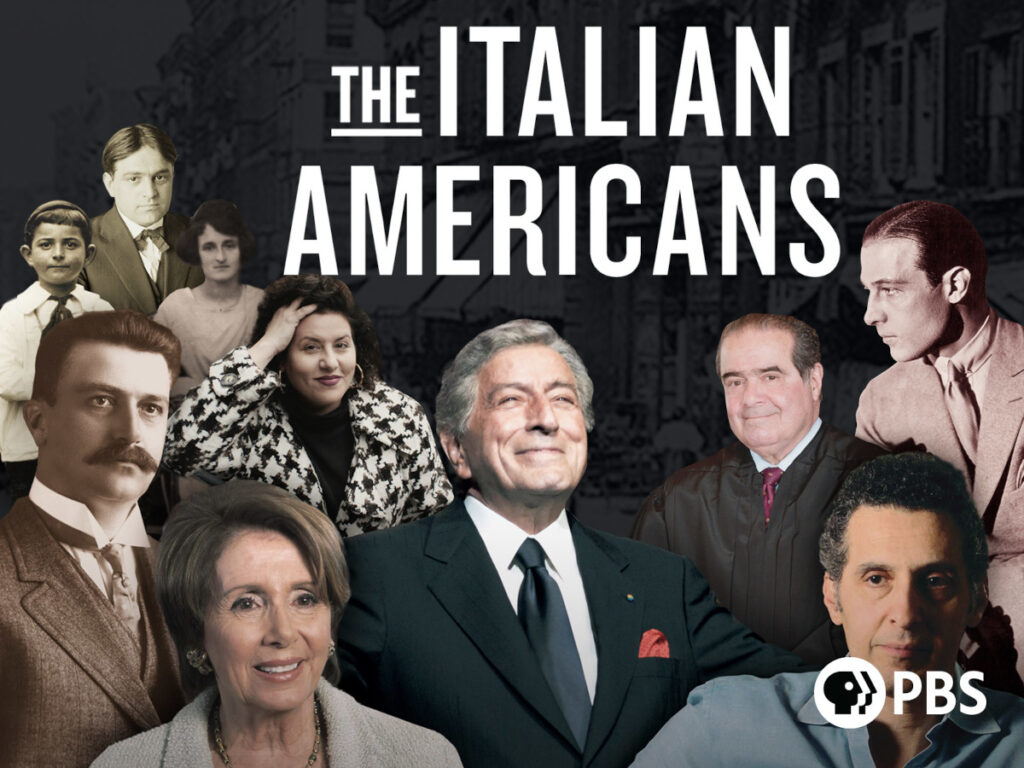
The PBS documentary series The Italian Americans is a comprehensive and poignant exploration of one immigrant group’s unique journey and its profound impact on American society. This four-part series, first aired in 2015, chronicles the struggles, triumphs, and enduring cultural legacy of Italian Americans. Using extensive archival footage, scholarly insights, and interviews with notable figures such as Tony Bennett, Nancy Pelosi, Gay Talese, and John Turturro, the series paints a vivid picture of how Italian immigrants and their descendants navigated the complexities of assimilation while striving to maintain their distinct cultural identity.
This article delves into the themes, historical context, and cultural significance of The Italian Americans, highlighting how the series brings to life the powerful ideals of family, identity, and resilience that have shaped the Italian-American experience.
The Historical Context: Italian Immigration to America
1. The Great Migration
At the turn of the 20th century, waves of Italians left their homeland to seek better opportunities in the United States. Fleeing poverty, political instability, and a lack of economic prospects in Southern Italy, over 4 million Italians immigrated to the U.S. between 1880 and 1920. Many came with the intention of earning money to support their families and eventually returning home. In fact, nearly half of the first-generation Italian immigrants did return to Italy, making their presence in America distinct from other immigrant groups.
2. Settling in Urban Centers
Those who chose to stay settled primarily in urban centers such as New York, Chicago, and Boston, forming tight-knit communities often referred to as “Little Italys.” These neighborhoods became the foundation for Italian-American life, providing immigrants with a sense of familiarity, support, and connection to their cultural roots.
3. Challenges of Assimilation
Italian immigrants faced significant prejudice and discrimination upon their arrival. Often stereotyped as uneducated, uncultured, and prone to criminal behavior, Italians were relegated to the margins of American society. They endured low wages, dangerous working conditions, and limited upward mobility, all while striving to protect their cultural identity.
Themes Explored in The Italian Americans
1. The Centrality of Family
One of the most defining qualities of the Italian-American experience, as highlighted in the series, is the importance of family. The documentary emphasizes how Italian immigrants brought with them a strong sense of familial loyalty and obligation, which became a source of strength and resilience in their new environment. Families worked together to support one another, pooling resources to navigate the challenges of immigrant life.
However, this emphasis on familial bonds also bred suspicion among outsiders, who often misinterpreted close-knit relationships as secretive or insular. This perception was exacerbated by the rise of organized crime in some Italian-American communities, which fueled stereotypes that persist to this day.
2. The Clash of Cultures
The Italian Americans delves into the tension between maintaining Italian traditions and assimilating into mainstream American culture. Immigrants and their descendants struggled to balance their old-world values with the demands of their new homeland, resulting in a dynamic and evolving identity that was both Italian and American.
This cultural duality is illustrated through the experiences of subsequent generations, who often faced pressure to abandon their heritage in pursuit of the American Dream. The series explores how Italian Americans grappled with these competing forces, ultimately forging a unique identity that blended elements of both cultures.
3. Overcoming Stereotypes
The documentary confronts the enduring stereotypes that have plagued Italian Americans, particularly those popularized in media portrayals of mobsters and criminals. While acknowledging the existence of organized crime within some Italian-American communities, the series challenges these reductive representations by highlighting the achievements and contributions of Italian Americans in fields such as politics, art, literature, and entertainment.
4. The Rise to Prominence
By the mid-20th century, Italian Americans began to achieve positions of power and influence in American society. Figures such as Frank Sinatra, Joe DiMaggio, and Fiorello La Guardia became cultural icons, while others entered the political arena and achieved significant success. The documentary examines how these trailblazers paved the way for future generations, helping to reshape perceptions of Italian Americans and redefine their place in the American narrative.
Notable Figures Featured in the Series
The Italian Americans brings the story of Italian immigration to life through the voices of scholars, historians, and prominent Italian Americans who share their personal experiences and insights.
1. Tony Bennett
The legendary singer shares his reflections on his Italian heritage and how it influenced his music and career. Bennett’s story exemplifies the ways in which Italian Americans have enriched American culture through their artistic contributions.
2. Nancy Pelosi
As the first female Speaker of the House, Nancy Pelosi represents the political achievements of Italian Americans. The series highlights her journey and the role her heritage played in shaping her values and leadership style.
3. Gay Talese
Renowned journalist and author Gay Talese offers a literary perspective on the Italian-American experience, drawing from his own family’s story to shed light on the immigrant journey.
4. John Turturro
Actor and filmmaker John Turturro reflects on how his Italian roots have informed his artistic choices and understanding of identity.
Impact and Cultural Significance
1. Preserving a Legacy
By documenting the Italian-American experience, The Italian Americans preserves a vital part of American history. The series ensures that the struggles and triumphs of Italian immigrants and their descendants are remembered and celebrated, offering future generations a deeper understanding of their heritage.
2. Challenging Misconceptions
The documentary challenges long-standing stereotypes by presenting a nuanced and multifaceted portrayal of Italian Americans. It highlights their resilience, creativity, and contributions, countering the often negative depictions found in popular media.
3. Inspiring Pride
For Italian Americans, the series serves as a source of pride, showcasing the strength, ingenuity, and determination of their ancestors. It reminds viewers of the enduring legacy of Italian culture and its profound impact on the United States.
4. Broader Relevance
While focusing on one immigrant group, The Italian Americans resonates with a broader audience by addressing universal themes of migration, identity, and cultural preservation. The series underscores the importance of diversity and the contributions of immigrants to the American story.
FAQs
1. What is The Italian Americans about?
The series explores the journey of Italian immigrants to America, their struggles, contributions, and the ways in which they shaped and were shaped by American culture.
2. Who created the series?
The Italian Americans was produced by PBS and features interviews with scholars and notable Italian Americans.
3. What themes does the series explore?
Themes include the importance of family, the clash of cultures, overcoming stereotypes, and the rise of Italian Americans to positions of prominence.
4. Why is the series significant?
It preserves the history and legacy of Italian Americans, challenges stereotypes, and highlights their contributions to American society.
5. Who are some of the notable figures featured?
The series includes interviews with Tony Bennett, Nancy Pelosi, Gay Talese, and John Turturro, among others.
6. How has Italian-American culture influenced the United States?
Italian Americans have enriched American life through their contributions to art, music, politics, sports, and cuisine, among other fields.
Conclusion
The Italian Americans is a powerful and evocative documentary that celebrates the resilience, creativity, and enduring legacy of Italian immigrants and their descendants. By shining a light on their struggles and contributions, the series offers a deeper understanding of one immigrant group’s role in shaping American society. With its rich storytelling and compelling insights, The Italian Americans is not just a tribute to Italian-American heritage but a celebration of the immigrant spirit that lies at the heart of the American experience.






